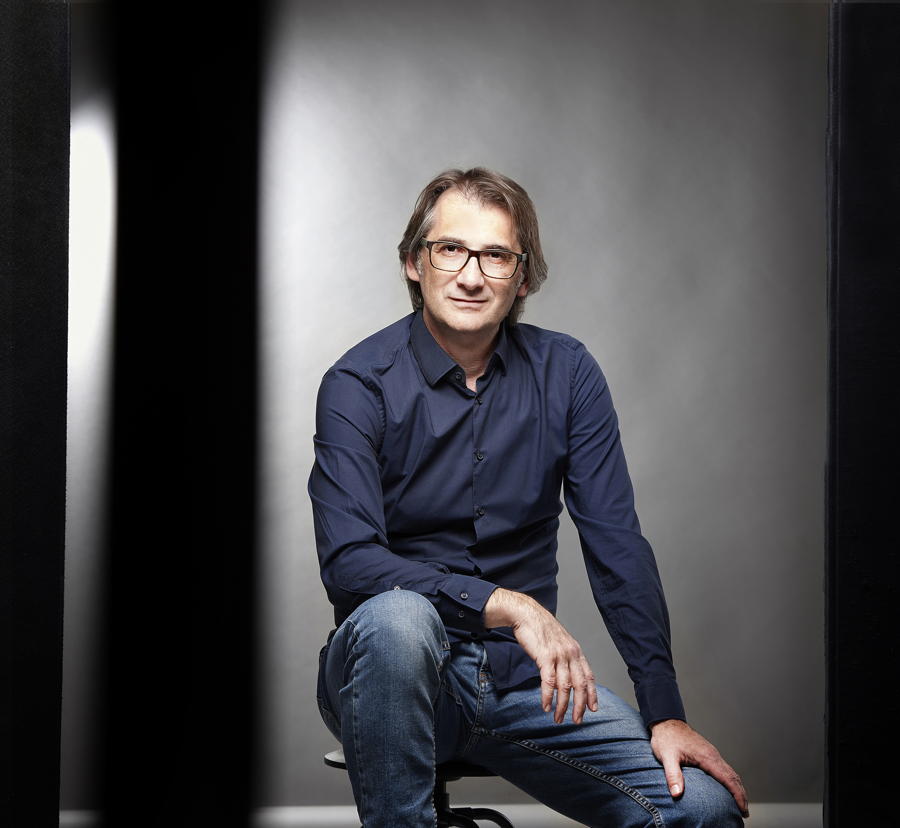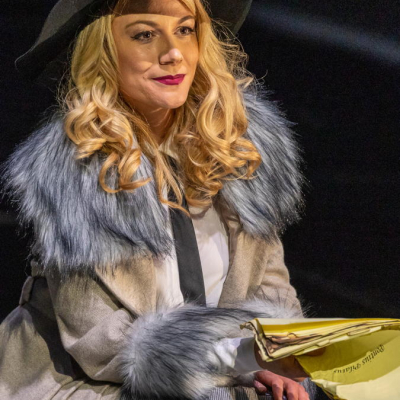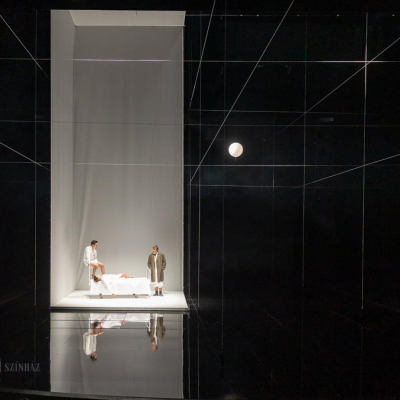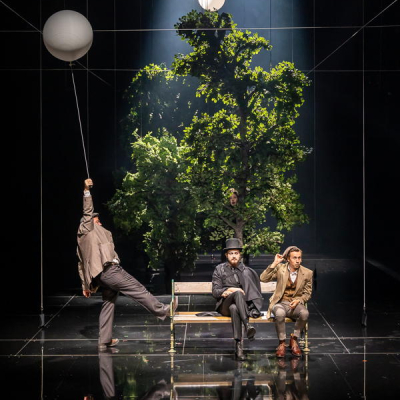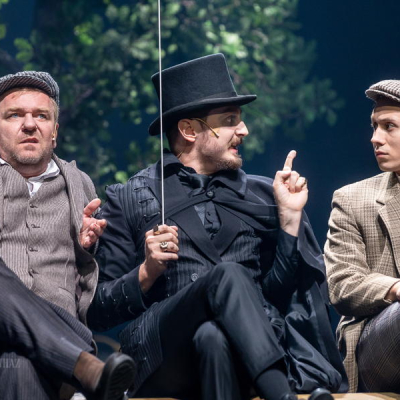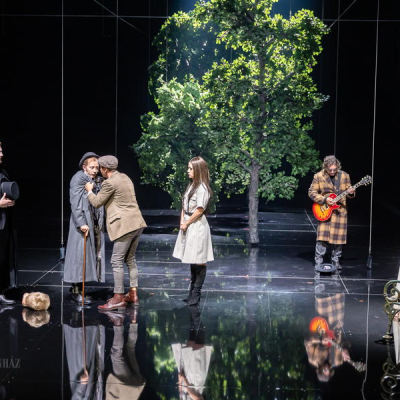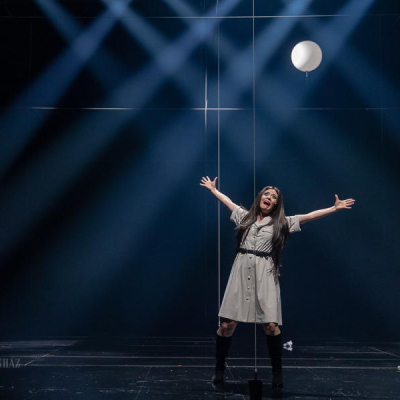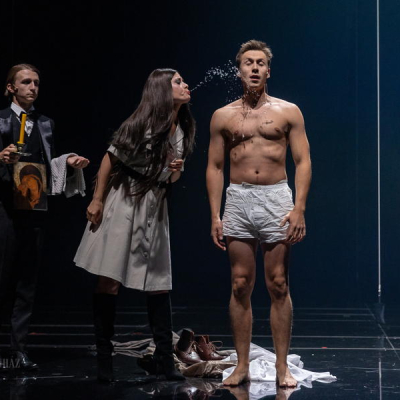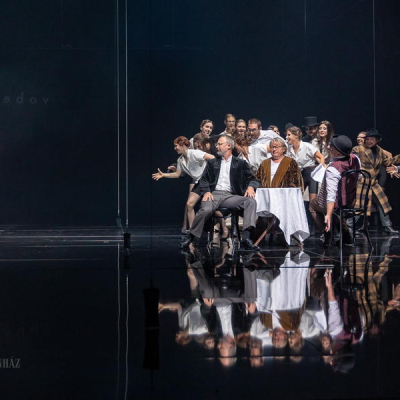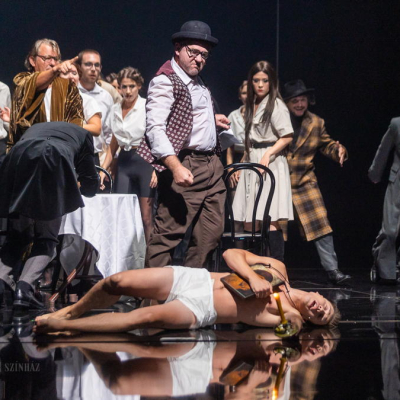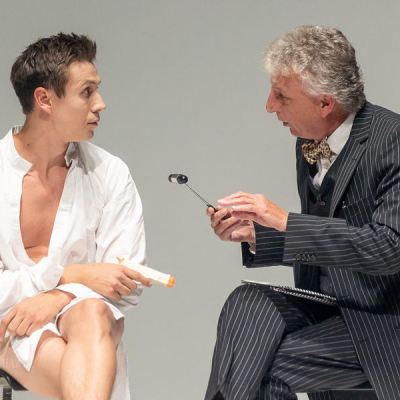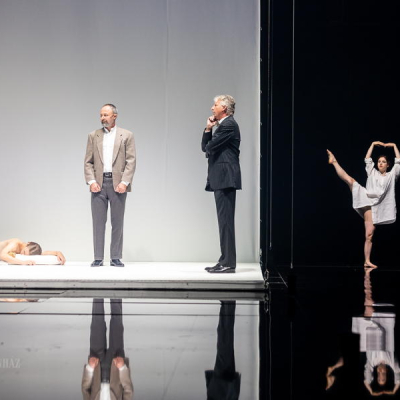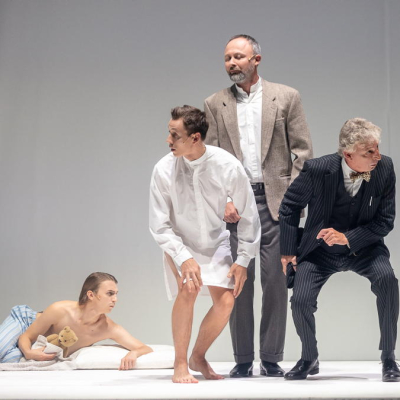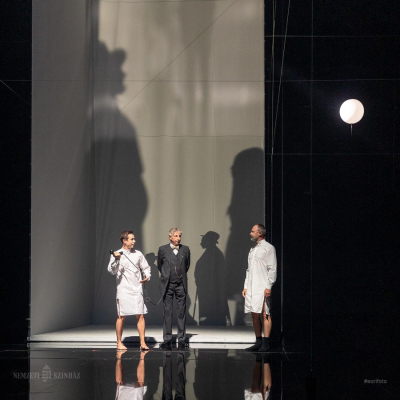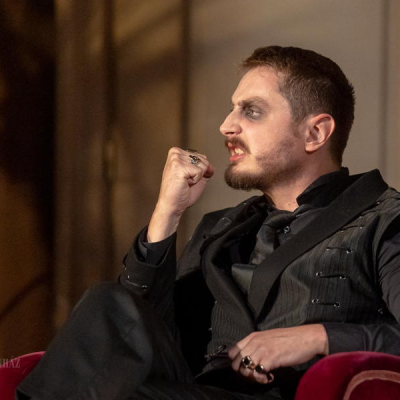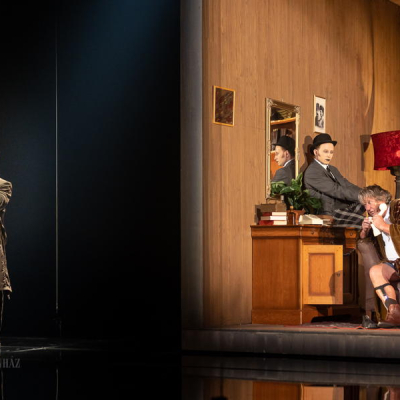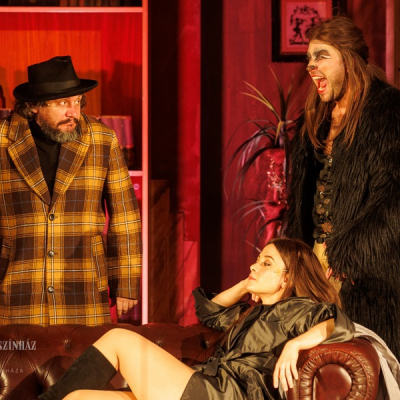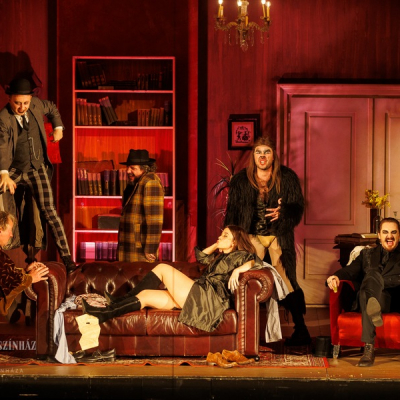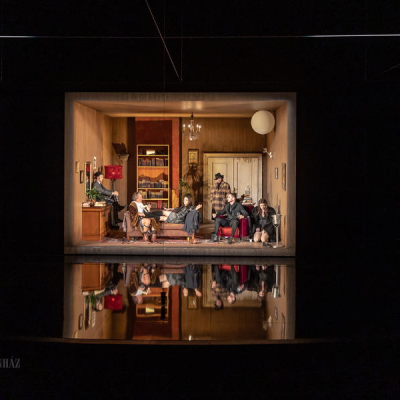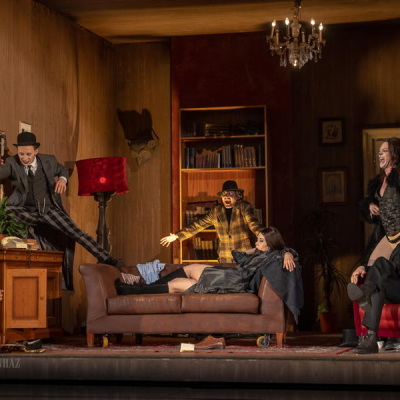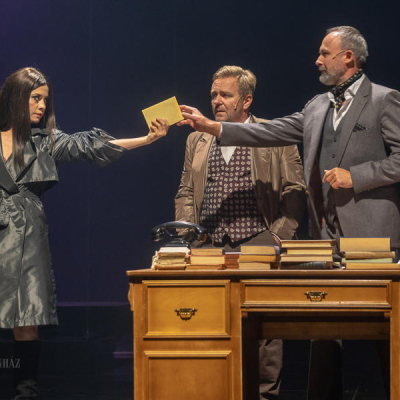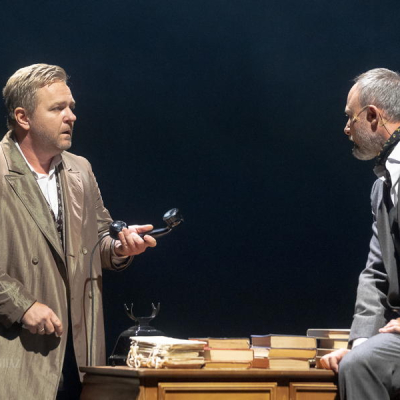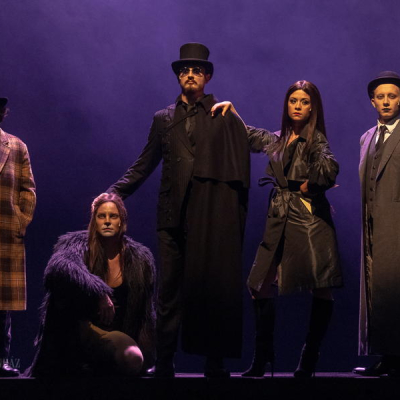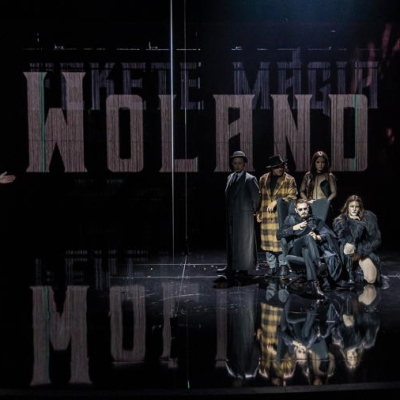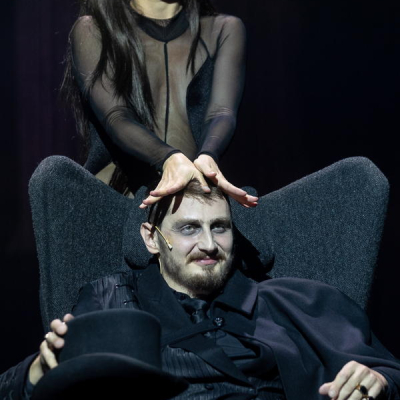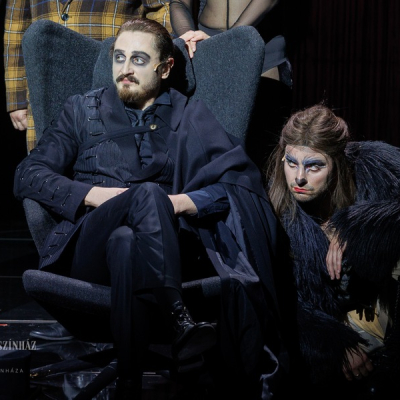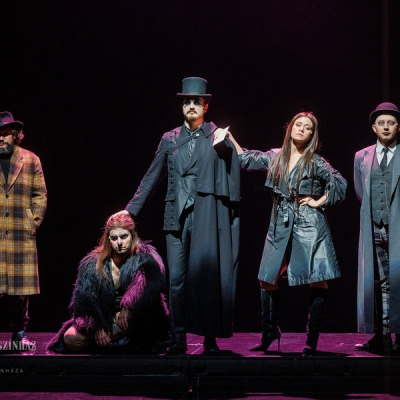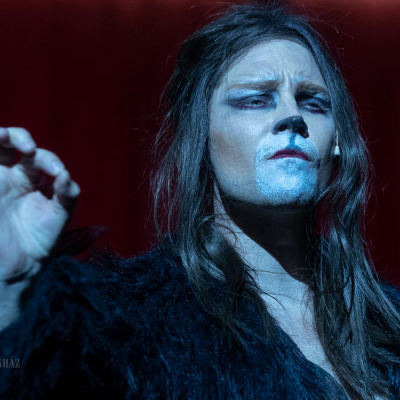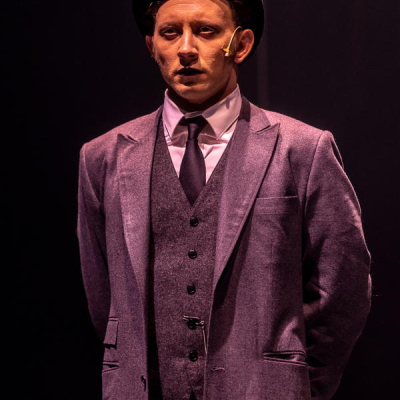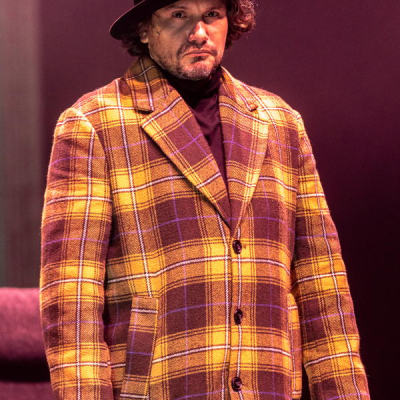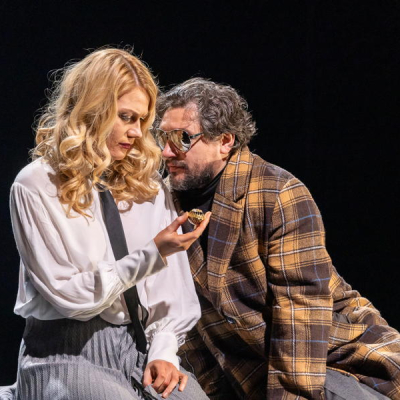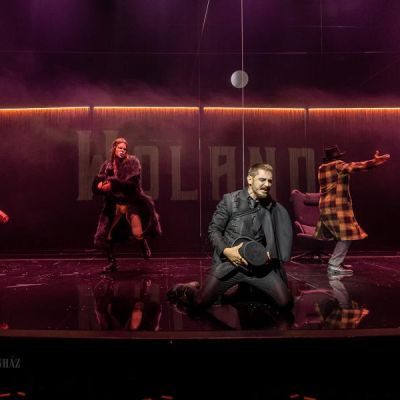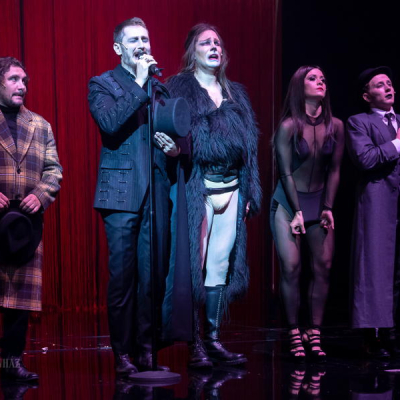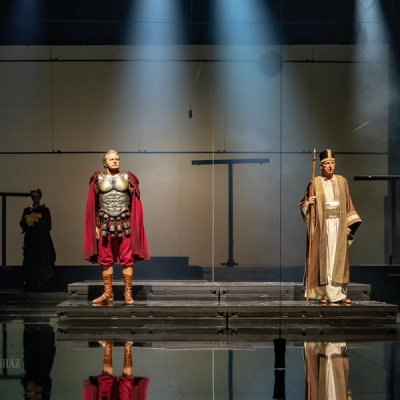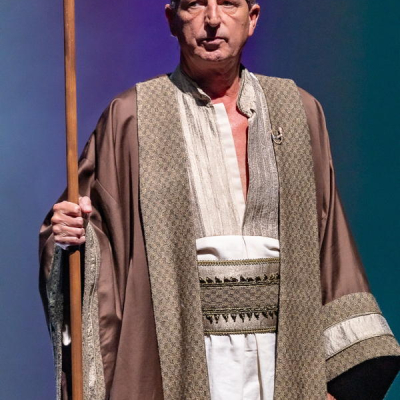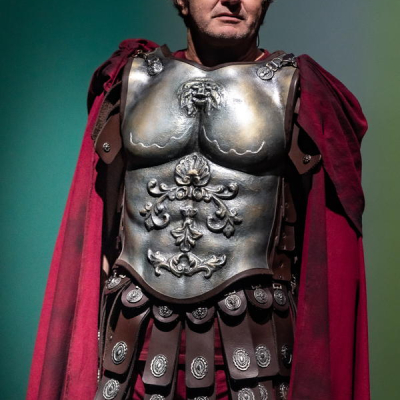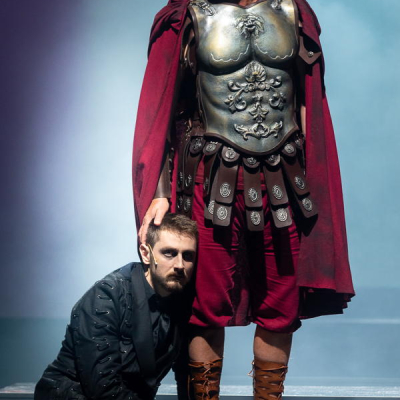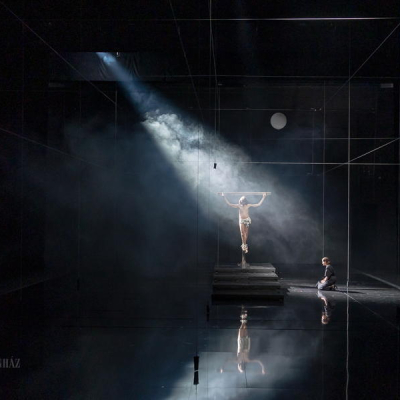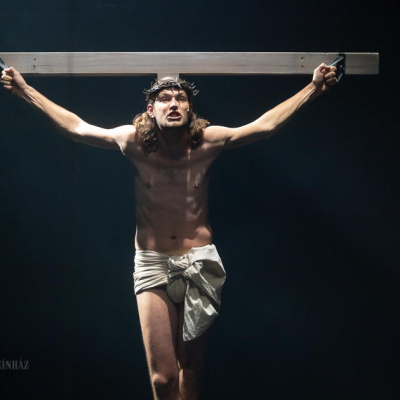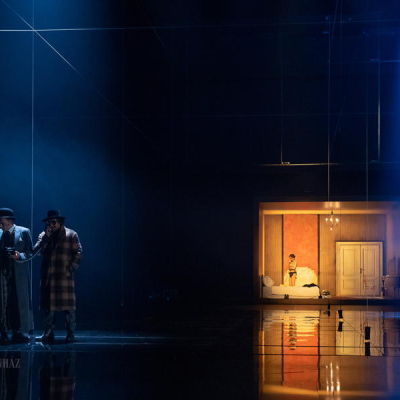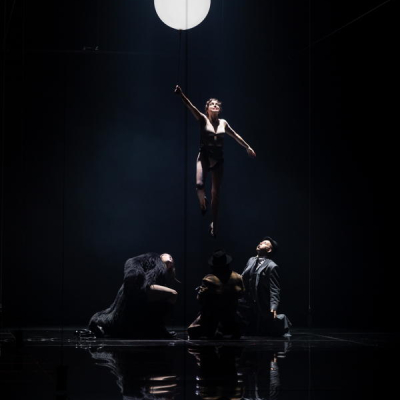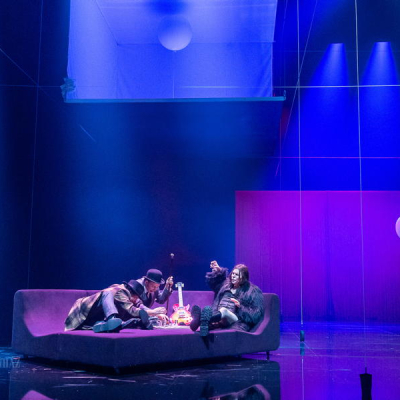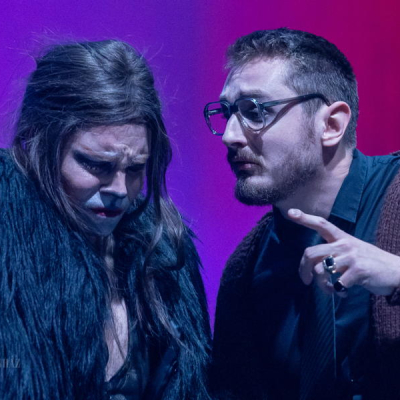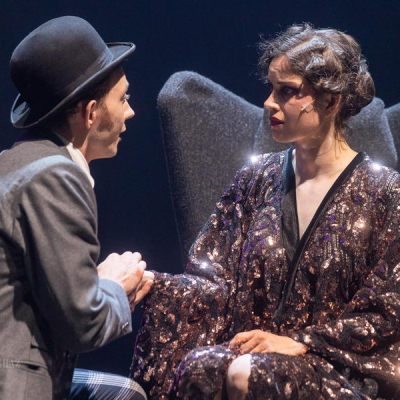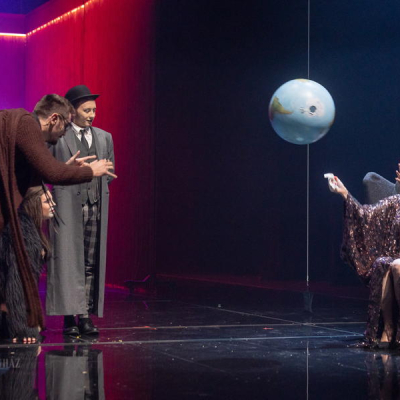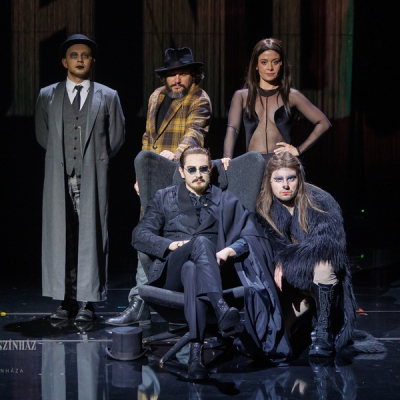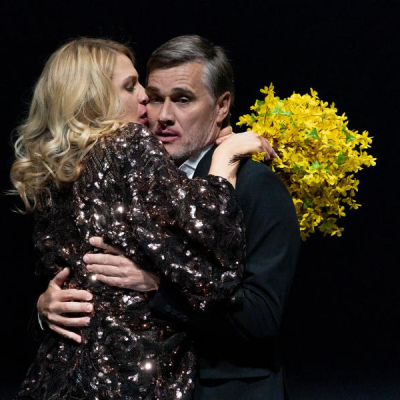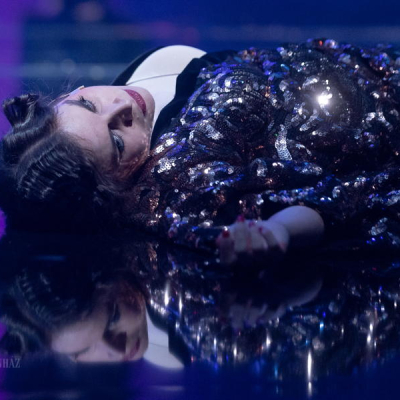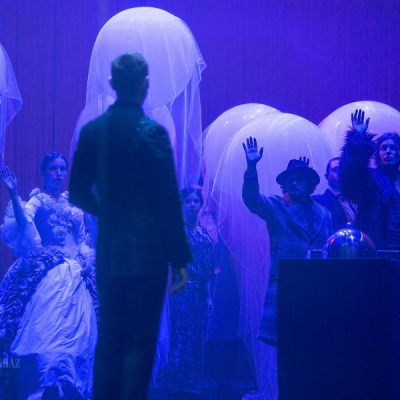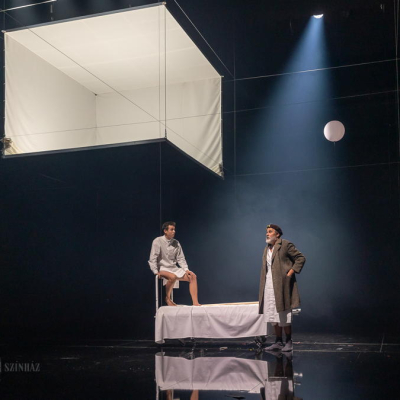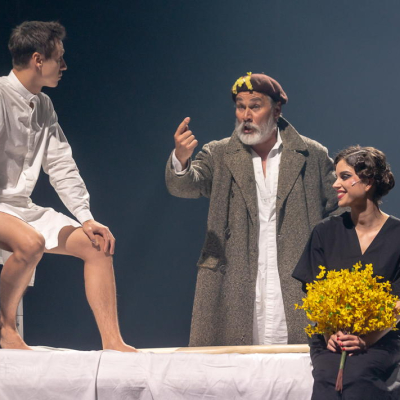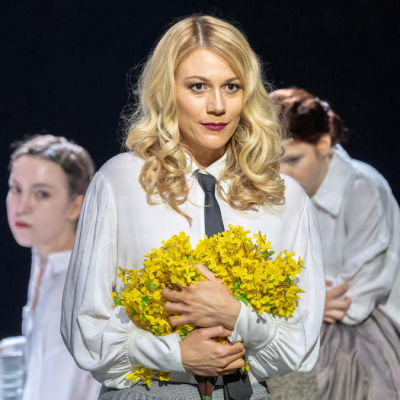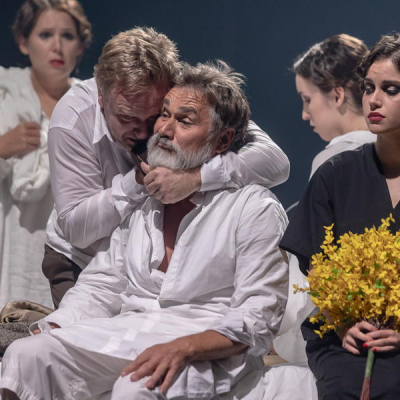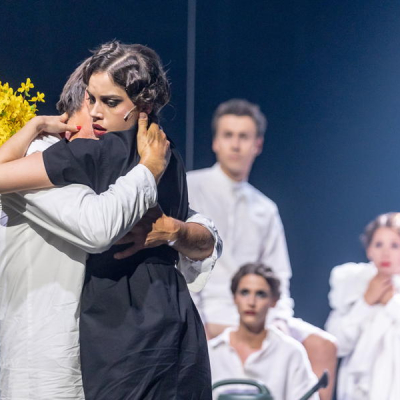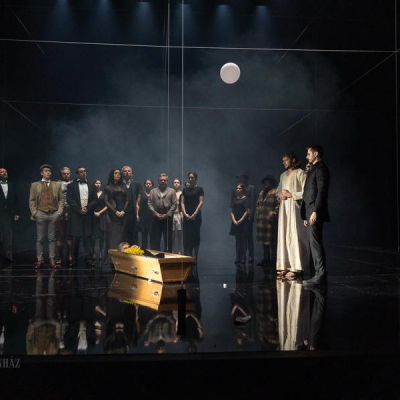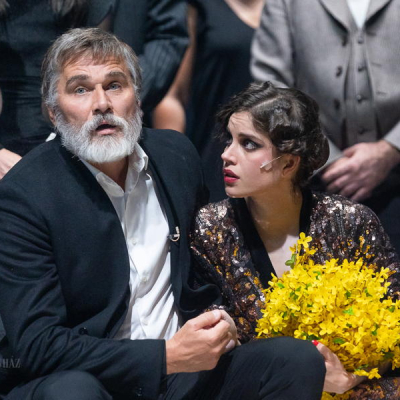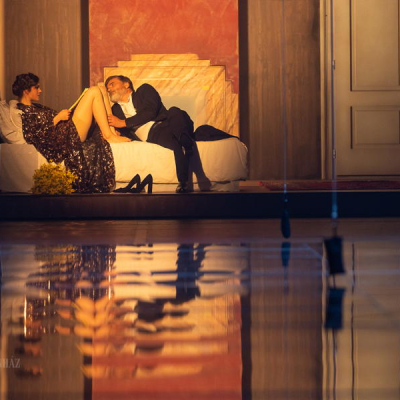THE MASTER AND MARGARITA
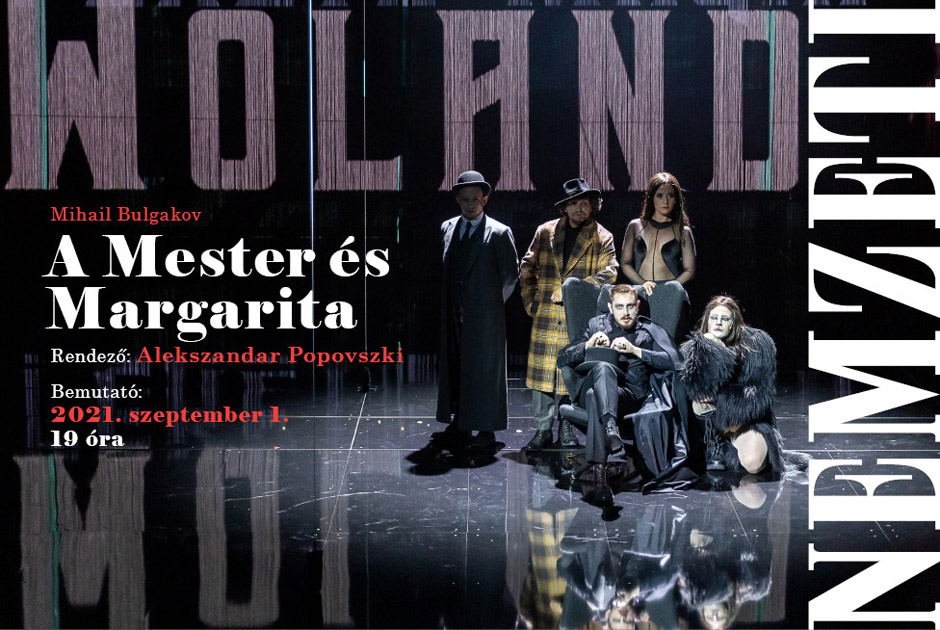
Hungary • National Theatre, Budapest
Director: Aleksandar Popovski
In Hungarian. On MITEM with English subtitles.
3 hours with 1 breaks.
Though the novel The Master and Margarita was written in the 1930s, during Stalin’s iron-handed rule, it could not be published in full until the 1970s. Had it ended up in the hands of the secret police, it would probably have brought death to its author Mikhail Bulgakov. The Master and Margarita is light years away from socialist realism, the literary style of the era made compulsory by state decree.
The poet Ivan Nikolaevich “Homeless” is taken to a Moscow mental hospital in his underwear, wearing a crucifix around his neck. Utterly confused, he explains to the doctor how he met Satan who is involved in the beheading of a literary man - no one believes him, of course. While in his cell, Ivan receives a secret visit from the mysterious Master, a fellow-patient who knows the story of Pontius Pilate... Outside the asylum, Woland the Devil and his associates wreak havoc in the streets of Moscow; elegant clothes are given away in the theatre and money falls from the sky - the clothes then disappear so people roam the city naked; the money evaporates, too... The Master’s lover also shows up to make a deal with Woland... Mikhail Bulgakov's novel The Master and Margarita is uniquely complex, intricate, mysterious, and captivatingly magical.
– We wanted to use this Moscow-Bulgakovian world to present the oppressive nature of the system. We rid the performance of the novel’s “communist” line. Today's liberal capitalist system, the world in which we live, is filled with fear and frustration. Spectators will recognize the system and themselves in it – says director Aleksandar Popovski.
Reading the novel, we shift in time and switch locations with ease, flying with Margarita over Moscow to Woland’s eerie ball. The free shifts through time and space and the switches between real and unreal are also implemented on stage. How? You must see for yourself!
Zsolt Trill
Roland Bordás
József Kovács S.
József Rácz
Márton Pallag
Ágnes Barta m.v.
Attila Kristán
Martin Mészáros m.v.
Ádám Schnell
Sándor Berettyán
József Szarvas
László Tóth
In other roles
Luca Badics, Lili Barna, Lujza Battai Lili,
Viktória Jambrovics, Tímea Virga, János Mató,
Dániel Székhelyi, Patrik Albert Hollósi e.h.
Numen/For Use + Ivana Jonke
Dóra Riederauer
Jelena Prokovic
Nejc Gazvoda
Ernő Verebes
Luca Hoffmann
Anna Guczogi
István Lencsés
Krisztián Ködmen
Szilvia Kabódi
Gábor Vida
Aleksandar Popovski


